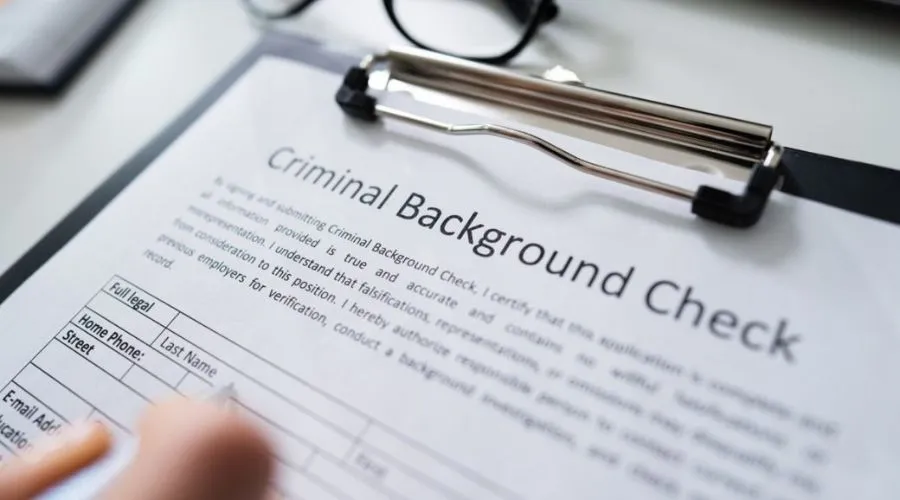Florida tenant screening laws are crucial for landlords. They help protect your rental business and ensure you follow federal rules. From credit checks to application fees, each step must align with the Fair Credit Reporting Act (FCRA) and fair housing rules. At LeaseRunner, we provide insights and resources to help landlords navigate these legal requirements with confidence and clarity.
Overview of Tenant Screening Laws in Florida
Florida tenant screening laws come from federal and state rules. They balance landlord rights with protections for tenants. Florida rental application laws support transparency, consent, and fairness. They provide clear criteria for landlords and ensure equal access to housing for renters.
Federal Fair Housing Act (FHA)
The Fair Housing Act stops discrimination. It covers race, color, national origin, religion, sex, familial status, and disability. Screening policies—such as a tenant background check in Florida for criminal records or credit history—cannot unfairly target protected groups.
The FHA ensures that tenant selection remains fair and that applicants have equal housing rights..
Fair Credit Reporting Act (FCRA)
The FCRA governs how landlords handle credit and Florida background check rules. Written consent is required before pulling reports, and an adverse action notice must be issued if housing is denied.
This protects tenants. It ensures accuracy and shows what landlords look for in a background check. Also, it complies with federal law. Learn how tenants can check their screening report. Applying Florida tenant screening laws properly helps landlords avoid legal disputes.
Florida Residential Landlord and Tenant Act (Chapter 83, Florida Statutes)
At the state level, this Act regulates application procedures, fees, and consistency in decision-making. It aligns with the lease laws in Florida. They require landlords' disclosure of standards to protect tenants from arbitrary denials. The law also addresses transparency with Florida rental laws, including security deposit handling and screening disclosures. A detailed tenant screening checklist can help landlords stay consistent.
Florida Fair Housing Act
The Florida Fair Housing Act mirrors the federal FHA but strengthens enforcement within the state. It extends anti-discrimination protections and ensures landlords apply screening standards uniformly. This law plays a key role in preventing biased practices and protecting tenant rights during the application stage. Applying these protections correctly is part of staying compliant with Florida tenant screening laws.
Allowable Tenant Screening Criteria in Florida
Under Florida tenant screening laws, landlords have broad discretion in evaluating rental applicants. However, they must always comply with both federal Fair Housing rules and state anti-discrimination statutes. Screening should rely on objective standards such as income, credit, and rental house background check results. For example, landlords often verify rental history through rental verification.
Written Screening Policy Requirements for Landlords
Florida emphasizes transparency in rental application laws. Landlords should provide written consent forms, disclose screening criteria, and maintain screening consistent procedures. Tenants have the right to see their reports and dispute errors. Common requirements include:
- Consent from applicants: Landlords must obtain signed authorization before running credit, criminal, or eviction background checks.
- Disclosure of screening criteria: Screening standards, such as minimum credit scores or eviction history policies, must be included in your rental advertisement.
- Access to screening reports: Tenants can request copies of their screening reports. They also have the right to know their rights under the Fair Credit Reporting Act (FCRA).
- Adverse action notices: If a landlord rejects an application, they must provide reasons for their decision in writing. They also need to give instructions on how to dispute any incorrect information.
- Record-keeping: Landlords should keep clear records of screening choices. This shows fairness and helps guard against discrimination claims.

Income Verification
In addition to these criteria, you should confirm whether the tenants can afford the rent by using rental multipliers. The 3x rent rule is one of the most widely used formulas landlords apply to verify a tenant's income. Following this rule, the property owners expect applicants to earn at least three times the monthly rent. While not legally mandated, this affordability guideline helps landlords assess a tenant’s ability to pay rent consistently each month.
Credit Check
Credit checks remain one of the most widely used tools in Florida tenant screening. With tenant consent, landlords may review credit scores, debt-to-income ratios, and payment histories through tenant background screening services. Reports are generally limited to seven years of financial data under FCRA guidelines. If a landlord denies an application due to poor credit, they must issue an adverse action notice that shows the reasons.
Eviction Records
In Florida, eviction history is considered a valid screening factor with no legal time limit. Landlords can access public court records to evaluate whether a tenant has prior judgments for non-payment of rent or lease violations. While fully legal, landlords must apply eviction criteria evenly to avoid discrimination or claims of disparate impact. Fair use of eviction criteria is also part of Florida tenant screening laws.
Criminal History
Florida law allows landlords to conduct criminal history reviews without strict limitations. Still, federal HUD guidance encourages an individualized assessment to ensure compliance with fair housing laws. Best practices suggest focusing on convictions relevant to housing and considering evidence of rehabilitation. Arrests without convictions should carry less weight to prevent unfair bias.

How Much Landlords Can Charge Tenant Screening Fees
Under Florida tenant screening laws, there is no statewide limit on how much a landlord can charge for application or tenant screening fees. This allows landlords to recover costs for background checks, credit reports, and processing. Still, the law expects landlords to act reasonably and disclose these charges clearly in writing—often in the rental listing or on the application form.
In practice, tenant screening fees in Florida usually fall between $25 and $50 per applicant. This amount reflects the average cost of a credit pull ($15–$40) plus a small administrative markup. Importantly, fees must not exceed the landlord’s actual expenses by more than a modest margin. They are also non-refundable, even if the tenant’s application is denied.
To remain compliant and avoid claims of unfair practices, landlords should:
- Provide written disclosure of all screening or application fees
- Apply the same charges consistently to every applicant
- Avoid inflating costs beyond what is justifiable
Failure to treat applicants uniformly could raise fair housing concerns and expose landlords to legal risk. By keeping fees transparent and reasonable, landlords not only comply with Florida tenant screening laws but also build trust with potential renters. For tips on setting fair fees, check out how much rent should I charge.

A Practical Guide to the Florida Tenant Screening Process
Screening tenants in Florida is not just about checking credit. Landlords must follow Florida tenant screening laws, comply with the Fair Credit Reporting Act (FCRA), and respect fair housing protections. These steps help you choose reliable tenants while staying compliant.
Step 1: Collect Applications and Screening Fees
Advertise your rental with clear standards, such as income minimums or no recent evictions. Use a standard rental application that includes written consent for background checks. Explain the screening fee, its purpose, and that it is non-refundable before you collect it.
Step 2: Process Applications
Check each application for complete details. Confirm identity, contact information, and income through pay stubs or tax records. Apply the “three times rent” guideline when reviewing income. Flag red signs like missing data, mismatched details, or unverifiable references.
Step 3: Run a Florida Tenant Screening Report
With consent, order a full report from a trusted screening service. This should cover credit history, eviction records, and criminal background. Ensure the provider adheres to FCRA rules to ensure the report is accurate and up-to-date. Using a professional service helps landlords stay consistent and fair.
Step 4: Evaluate & Make the Final Decision
Compare applicants against the same standards, such as a minimum credit score of 600 or a solid rental history. Keep notes to prove fairness in case of disputes. If you deny an applicant, send an adverse action notice that explains why and outlines their rights to dispute the decision.
Step 5: Issue Decision Notice
Tell all applicants quickly. Approved renters get a lease offer. Denied renters must receive an adverse action notice with a report summary and dispute steps. Keep these records for at least two years in case of complaints.
Tenant Rights During the Tenant Screening Process
When applying for a rental in Florida, tenants are protected by both federal and state tenant screening laws. These laws aim for fairness, accuracy, and transparency. They ensure applicants aren't wrongly denied housing because of errors or discrimination. Knowing these rights helps renters manage the process and shield themselves from illegal practices.
Right to Give Informed Consent
Before a landlord runs a background check, credit report, or eviction history search, the applicant must provide written consent. This guarantees that tenants know exactly what information will be reviewed and how it may impact their rental application.
Right to Access Screening Reports
If an application is denied or questioned, Florida tenants can request a free copy of their screening report. This lets renters check their credit, rental, or criminal background info. They can also find any mistakes.
Right to Dispute Errors
Under the Fair Credit Reporting Act (FCRA), tenants have the right to challenge inaccurate or outdated information. Screening agencies must investigate disputes within 30 days and remove or correct data that cannot be verified. This ensures that past mistakes do not unfairly influence housing opportunities.

Right to an Adverse Action Notice
If a landlord denies housing due to a background check or screening report, they must issue a written adverse action notice. This notice must explain why the decision was made and provide contact details of the reporting agency. It must also inform the tenant of their right to review and dispute the report.
Protection Against Discrimination
Federal Fair Housing laws and Florida tenant screening laws prohibit landlords from using criteria that unfairly exclude renters. These protections apply to factors such as race, religion, gender, disability, family status, or other protected categories.
For example, blanket bans on applicants with a criminal record can be seen as discriminatory. Landlords must offer an individualized review to avoid this.
Privacy and Data Security
Landlords and screening companies need to follow privacy rules. This protects personal data, such as Social Security numbers, addresses, and job history. In Florida, credit and eviction records last for seven years. This limits long-term effects from past problems.
Use of Portable Screening Reports
Although not required by Florida law, applicants can provide portable tenant screening reports from certified providers. Landlords should check them if they're valid. This helps renters avoid paying application fees again and makes the approval process faster.
Best Practices for Florida Landlords to Stay Compliant
Following Florida tenant screening laws protects landlords from discrimination claims, FCRA violations, and costly disputes. Clear compliance also keeps the screening process simple and fair.
1. Always Get Written Consent and Provide Disclosures
Never run background or credit checks without signed consent. Applications must include FCRA-compliant authorization forms. These forms should clearly state the screening criteria, fees, and how the information will be used. Using LeaseRunner’s templates ensures these disclosures are clear, accurate, and consistent.
2. Use Trusted Screening Services
Partner only with FCRA-certified tenant screening providers. LeaseRunner offers accurate and current credit, eviction, and criminal background data. This helps you avoid outdated records. Relying on old information could lead to issues with Florida landlord-tenant laws.
3. Send Adverse Action Notices on Time
If you deny an applicant, you must follow federal timelines by sending a written adverse action notice. This includes details about the screening report and the applicant’s right to dispute errors. LeaseRunner automates this step, making compliance straightforward.

4. Train Staff on Fair Housing Rules
Educate anyone involved in leasing decisions about Florida’s Fair Housing requirements. Broad bans on criminal history or uneven screening can mistakenly harm tenant rights. Ongoing training reduces the chance of discrimination claims.
5. Audit and Keep Records Consistently
Keep all screening records, decisions, and reports for at least two years. Regular audits help confirm that criteria are being applied consistently and fairly. LeaseRunner’s dashboard makes it easier to store and track this information for future reference.
6. Consider Portable Tenant Screening Reports
Although not required, some Florida landlords now accept portable tenant screening reports from applicants. This speeds up leasing, shows fairness, and follows best practices in Florida.
Conclusions
Understanding Florida tenant screening laws means balancing landlord protections with tenant rights under a clear legal framework. By applying legal criteria, fair fees, and structured screening, landlords can find reliable tenants while complying with fair housing rules. Using trusted resources like LeaseRunner helps landlords stay aligned with evolving regulations and avoid costly legal disputes.
FAQs
1. What background checks can landlords run in Florida?
Landlords may review credit, eviction history, criminal records, employment, and rental references. Written consent is required, and checks must follow FCRA and fair housing rules.
2. What are the rent control laws in Florida?
No statewide rent control exists. Rent increases are market-based, though local governments may set temporary limits during housing emergencies.
3. Can landlords charge application fees?
Yes. Fees have no legal cap but must be reasonable, typically $25–$50, and disclosed upfront to cover screening costs.
4. What if a report has errors?
Tenants can dispute errors with the reporting agency. Under FCRA, the agency must investigate within 30 days and correct mistakes.
5. How far back can criminal records be checked?
Florida sets no time limit. Best practice is an individualized review, focusing on recent, relevant convictions instead of blanket exclusions.



